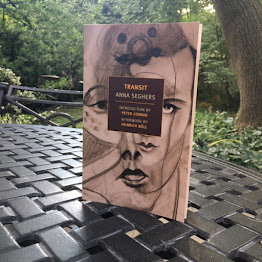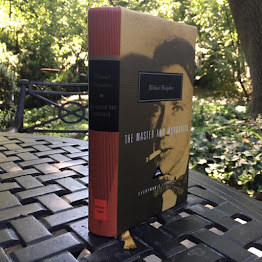After finishing Henrik Pontoppidan's
Lucky Per, I was wondering how well-known Nietzsche was in Scandinavia, and when. The main events of Pontoppidan's novel take place in the 1880s; there's a lot of Nietzschean-sounding language, though no actual reference to Nietzsche; was that anachronistic? For other reasons I had a bunch of Project Gutenberg books by Georg Brandes already on my eReader. (Post on James Huneker coming maybe some day?) One of them was Brandes'
short book on Nietzsche.
Brandes was a well-known Danish critic in his day. He died at the age of 85 in 1927. He wrote mostly in Danish, but had a European reputation and his works were rapidly translated into other languages, including English. He was Jewish. The introduction to
Lucky Per told me that the Dr. Nathan of that novel was a stand-in for Dr. Brandes, a not entirely flattering portrait Brandes took in good humor anyway. (Per calls him an ineffectual aesthete at some point, but perhaps Per is not entirely to be trusted.)
This book consists of three essays written on Nietzsche at different times, the earliest in 1889, just after Nietzsche's embracing the horse and descending into madness; the last in 1900, just after he died. They're sensible, I thought, taking Nietzsche seriously, but not completely reverently. He chastises Nietzsche for his attitude on women, preferring Mill. He emphasizes Nietzsche's opposition to anti-Semitism. There are better introductory works on Nietzsche now, though.
The most interesting part of the book were the letters between Brandes and Nietzsche. Nietzsche had his publishers send copies to Brandes of two of his books in the hope that this prominent European intellectual would do something with them. Brandes ignores the first couple (
Beyond Good and Evil and
Human, All Too Human) but then reads the third,
The Genealogy of Morals. He writes a letter to Nietzsche apologizing for ignoring his earlier books, explaining he gets so many...But now he plans to read them and say something. This is the opening letter between them in November of 1887.
Nietzsche for us is Nietzsche, i.e., terrifying, one of the unscalable mountains of philosophy, but in 1887, even though he'd written a good deal of his major work, he's still pretty much a nobody, and he's charmingly thrilled and deferential that such a luminary as Brandes is reading him. Now that's reversed. My spell-checker is perfectly happy with Nietzsche as a word. Brandes is underlined everywhere. So fleeting is fame.
And Brandes does take Nietzsche seriously. In the spring of 1888, Brandes gives a two-lecture series on Nietzsche in Copenhagen; the first was poorly attended, "since no one knew who and what you are", and Brandes apologizes for that; but his first lecture got a favorable notice in the newspaper and so the second was better attended. Nietzsche writes from Turin, "I am so relieved, so strengthened, in such good humor...Have I not the good north winds to thank for it, the north winds which do not always come from the Alps?--they come now and then even from Copenhagen!"
The last of the letters is a postcard from Turin, one of the so-called
Wahnzettel, the madness letters, written after Nietzsche's breakdown. He signs it 'The Crucified.'
Anyway, that more or less answered my question. Per almost certainly would not have read Nietzsche at the time he was saying rather Nietzschean things. So you have to just assume it was in the air. But the question usefully got me to read the book...
Some more quotes (all from Brandes' letters to Nietzsche):
"There is a writer who would interest you, if only he were translated: Søren Kierkegaard."
--Letter of Jan. 11, 1888 (Ha! I can just imagine.)
"I am not an intruder by nature, so little in fact that I lead an almost isolated life, am indeed loth to write letters and, like all authors, loth to write at all."
--Letter of Apr. 3, 1888 (Amusing, though a bit disingenuous.)
"In my early days I was passionately polemical, now I can only expound; silence is my only weapon of offence."
--Letter of Nov. 23, 1888






